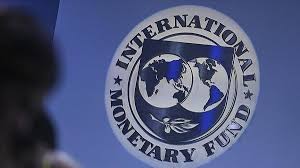Dr. Adrian Alter, the newly appointed International Monetary Fund (IMF) Resident Representative to Ghana, has urged the country to prioritize the strict enforcement of fiscal rules as a critical step toward achieving macroeconomic stability and sustainable growth.
Speaking at a policy roundtable jointly organized by the International Institute for Sustainable Development (IISD) and the IMANI Center for Policy & Education in Accra, Dr. Alter emphasized that Ghana’s fiscal reforms must go beyond design to focus on enforceability.
The roundtable, held at the Tang Palace Hotel, brought together key stakeholders from government, Parliament, development partners, civil society, and academia to discuss the structure and implementation of Ghana’s new Fiscal Council.
Dr. Alter, who officially assumes office on September 2, replacing Leandro Medina, said his immediate priority would be to work closely with the Ghanaian government and other stakeholders in strengthening fiscal discipline through technical assistance and institutional support.
“It’s nice to be here just to make a few points on the presentation. One thing that Fernando emphasized is that fiscal rules do not work so much in SSA. And I think we all have a responsibility to work on the enforceability of fiscal rules. That is one main issue that all countries have: the enforcement of fiscal rules” Dr. Adrian Alter.
According to him, fiscal rules across Sub-Saharan Africa often contain exemptions, which political leaders sometimes exploit, thereby undermining fiscal discipline.
He cautioned that such practices could jeopardize fiscal sustainability and urged Ghana to strengthen the legal and institutional framework underpinning its fiscal rules to ensure consistent compliance.
IMF’s Support
Beyond enforcement, Dr. Alter pledged the IMF’s commitment to providing technical assistance in support of the newly established Fiscal Council, which is expected to serve as an independent body monitoring fiscal policy.
“We want to work closely with the government on technical assistance for the fiscal council. We are here to support every effort, every moment. So you can just come to me and we will definitely bring those people to start working up to speed.”
He further identified reliable, timely, and comprehensive data as fundamental to fiscal management, especially in measuring public debt.
In his view, accurate data collection and reporting would not only cover central government finances but also include state-owned enterprises (SOEs), whose debt burdens often complicate Ghana’s fiscal position.
“Data availability, reliability, and timeliness of data—I think that is extremely important. And public debt is something that covers not only central government, it covers SOEs and so on.
“So that’s where the complexity starts to come into how to bring all that data together. And I think that’s where we need to focus most of our efforts initially to get that reliability and timeliness up to speed”.
Fiscal Council
He also stressed that Ghana’s Fiscal Council should not only act as a watchdog over government budgets but also provide independent analysis of proposed tax measures and expenditure policies.
By offering such technical evaluations, the council could strengthen the country’s fiscal decision-making process and prevent policies that might erode fiscal balances.
“They can, apart from checks and balances on the budget, also bring new views on, let’s say, a new tax measure or removing a new tax. What is the impact on the budget? What is the impact on the bottom line of primary balance and so on?”.
Dr. Alter’s remarks come at a time when Ghana is working under an IMF-supported program aimed at restoring debt sustainability, strengthening public finances, and stabilizing the economy.
The creation of a Fiscal Council has been identified as a key reform to anchor fiscal policy and prevent the recurrence of large deficits that have historically undermined Ghana’s economic stability.
The IISD-IMANI policy roundtable provided a platform for stakeholders to deliberate on the institutional design and operational independence of the Fiscal Council, ensuring it can fulfill its mandate effectively.
Participants explored how the council could contribute to greater fiscal transparency, enhanced accountability, and improved public trust in economic governance.
Dr. Alter noted that his engagement at the roundtable had been highly instructive as he begins his assignment in Ghana. “It’s so nice to be at such an event. I think I learned a lot about Ghana and about the issues here in two hours,” he said.
Dr. Alter’s call for stronger enforcement of fiscal rules, better data management, and a technically empowered Fiscal Council is very pivotal in Ghana’s pursuit towards achieving better fiscal governance in the months ahead.
His pledge of technical support signals the IMF’s readiness to partner closely with Ghana in building lasting institutions for fiscal discipline.


Comments are closed.